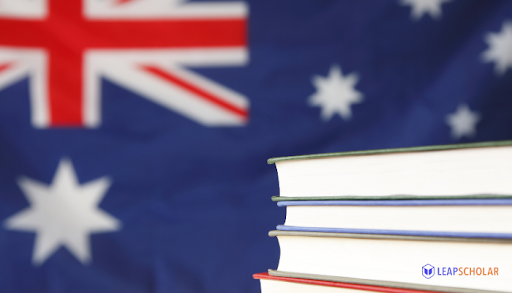For many students, the IELTS test feels like the biggest roadblock between them and their Australian dream.
Here’s the strategic truth: You can study in Australia without IELTS.
This 2026 guide breaks down the safest, most updated pathways Indian students can use to apply confidently to top universities without the traditional English test. You can use alternatives like strong Class 12 English marks, Medium of Instruction (MOI) letters, PTE, or TOEFL.
However, after the 2025 Genuine Student (GS) rule changes, getting a university offer is simpler than securing your visa. The Australian Department of Home Affairs (DHA) has become stricter. This guide shows you exactly how to choose the right university and English-proof method to avoid visa rejection and secure both your admission and Australian study visa without unnecessary risks.
Can You Really Study in Australia Without IELTS?
Choose your dream country
When do you want to study abroad?
What's your highest level of education?
Select you current city
How Leap will help you
Personalised University Shortlist
Express Applications with Quicker Admits
End-to-End Application Support
You absolutely can get admission to an Australian university without IELTS. The reality, however, is that the visa application is the real challenge.
Australian universities have flexibility and can accept various English requirements for admission, including:
- Class 12 English marks (CBSE/ICSE)
- Medium of Instruction (MOI) documents
- PTE Academic
- TOEFL iBT
- Duolingo (often for admission only)
However, the Australian visa office is much stricter. Since the 2025 Genuine Student (GS) requirement update, the rules are:
- A university may accept you without IELTS.
- But the visa officer may still request a standardized test like PTE or TOEFL.
- If your English evidence doesn’t meet the Department of Home Affairs (DHA) criteria, your visa may be refused.
Strategic Insight: If you want a safe, no-risk route that guarantees acceptance by both the university and the DHA, choose PTE Academic. It is fully computer-based, has fast results (48 hours), and is accepted by 100% of all Australian universities and the visa office.
The Three Legitimate IELTS-Free Pathways for Indian Students
There are three legitimate and safe ways for Indian students to apply to Australia without taking the IELTS test.
Pathway 1: Class 12 Marks + Medium of Instruction (MOI)
This is the most common way to study in Australia without IELTS. Many Level 1 universities (lower risk) accept a high score in your most recent English-medium education. MOI (Medium of Instruction) is a letter from your school confirming that all your subjects were taught in English. It strengthens your application because it shows:
- You studied in an English-speaking academic environment
- You used English for daily learning and communication
- You already meet the minimum language exposure needed for university study
Requirements for this Pathway:
- Eligibility: Typically 70–75% in Class 12 Core English (CBSE/ICSE). Select State Boards (e.g., Maharashtra, Karnataka, Tamil Nadu) are also accepted.
- Validity: Your Class 12 qualification must generally be within the last 2–5 years; a longer gap will likely require a fresh test score.
- Important Context: For applications from all states, especially those with high visa risk rates, the university may still strategically demand a standardized test like PTE or TOEFL for maximum visa security.
Pathway 2: PTE & TOEFL – The Safest IELTS Alternatives
These tests are fully accepted by both Australian universities and the DHA visa office, offering the smoothest route.
| Feature | PTE Academic | TOEFL iBT (Test Center) |
| Test Style | Fully computer-based | Computer-based |
| Results | Fast (within 48 hours) | Typically within 4–6 days |
| Acceptance | Accepted by 100% of universities and DHA | Widely accepted; Home Edition is NOT accepted for Australian visas |
English Score Comparison (Minimum Visa and University Levels)
| English Level | IELTS Score | PTE Score | TOEFL iBT Score |
| Vocational (Min. for Visa) | 5.5 | 42 | 46 |
| Competent (Standard Entry) | 6.0 | 50 | 64 |
| Proficient (High Entry) | 7.0 | 65 | 94 |
| Superior | 8.0 | 79 | 110 |
Why PTE & TOEFL Are the Safest IELTS-Free Pathways
- Both tests are officially recognized by DHA → no visa risks
- Universities process these results smoothly
- Scoring is transparent, consistent, and easier to plan for
- They avoid the unpredictability of IELTS speaking/writing
- Students who fear face-to-face speaking often find PTE much easier
Pathway 3: ELICOS - English Language Intensive Courses for Overseas Students (Packaged Offer)
If you are slightly below the English requirement (e.g., IELTS 5.5 when the university needs 6.0), universities allow you to take an ELICOS (English Language Intensive Courses for Overseas Students) English program before starting your course.
- What it is: You take an ELICOS (English Language Intensive Courses for Overseas Students) program for 10–20 weeks before starting your main degree.
- Outcome: After successful completion of the ELICOS program, you begin your main course without needing to retake a standardized test.
- Advantage: This is an excellent route for students who do not want to retake IELTS/PTE but need to demonstrate competency for their visa.
The “Compliance Trap”: Visa Risks in 2026
Even if your university gives you an offer without IELTS, the visa officer may reject your application if your English proof is not strong enough.
Understanding Evidence Levels
The Australian government assigns risk levels to universities:
- Level 1: Lower risk → safer to apply without IELTS.
- Level 2 & 3: Higher risk → visa officer may demand a valid English test.
If you apply to a Level 2 or 3 university without a standardized test score, your visa may be refused under GS.
The Duolingo Gap
Some universities accept Duolingo for admission. But the visa office does NOT.
Result:
University says yes → Visa office says no → Rejection.
Conclusion: Never depend solely on Duolingo if you plan to study in Australia.
Universities Accepting IELTS Waivers (2025–26)
Here’s a refined university list grouped by tiers.
1. Group of Eight (Go8) – Top Research Universities
These are Australia’s Ivy League widely known as the Go8 Universities in Australia.
- University of Melbourne: Accepts CBSE/ISC English scores (typically 75%+) for select programs; MOI considered for PG in certain faculties.
- Australian National University (ANU): May accept CBSE/ISC 75% in English for some courses; however, many programs still require IELTS/PTE for visa compliance.
- UNSW Sydney: Accepts CBSE C1 or ISC 70–75%
- UNSW Sydney: Accepts CBSE C1 grade or ISC 70–75% in English as evidence of English proficiency.
- University of Queensland (UQ): 70% in English (within last 5 years)
- University of Western Australia (UWA): Accepts CBSE/ISC English 70%+ or strong MOI evidence for PG; Nursing/Health courses require IELTS/PTE.
- Monash University: Maps Indian marks to VCE; usually 70–75%
- University of Adelaide: Accepts CBSE/ISC + select State Boards
2. Technology & Innovation Universities
Swinburne University: Accepts CBSE/ICSE 65–70%
- Macquarie University: Accepts most major State Boards
- RMIT University: Accepts 70%+, but Nursing still requires IELTS
3. Regional Universities (Easier Entry + Lower Competition)
- Bond University: Highly flexible; MOI accepted
- University of Southern Queensland: May consider English-based work experience
Step-by-Step Application Guide
Follow these steps to maximize your chances of securing both admission and your visa without a standardized English test.
- Check Eligibility: Confirm you scored at least 70%+ in Core English in your most recent qualification (Class 12 or above).
- Get an MOI Certificate: Request a Medium of Instruction (MOI) letter from your school or university, confirming your studies were conducted in English.
- Verify University’s Evidence Level: Before applying, confirm if the university is Level 1, 2, or 3. If it’s Level 2 or 3, it is highly recommended to take PTE Academic to avoid visa risk.
- Prepare for the GS Interview: Visa officers may call you for a Genuine Student (GS) interview to assess your English fluency and genuine intent. Weak answers can lead to refusal even with an academic waiver.
Estimated Cost of Studying in Australia (2026)
A realistic and clear financial plan is an essential part of your Australian student visa application. Below are the estimated costs for 2026.
| Expense Type | Approximate Cost (AUD) | Approximate Cost (INR) |
| Tuition Fees (Annual) | $30,000 – $50,000 | ₹16.5 Lakh – ₹27.5 Lakh |
| Living Expenses (Annual) | $24,505 | ₹13.5 Lakh |
| Student Visa Fee | $710 | ₹39,000 |
Note: INR fluctuates; always check the latest rates.
Conclusion
Studying in Australia without IELTS is absolutely possible, but your success depends on choosing the right strategic pathway.
While universities may offer generous English waivers based on your academic marks, the Australian visa system is much stricter under the new Genuine Student (GS) requirement and Evidence Level framework.
Our final advice is this: If you are applying to top-tier Level 1 universities, an academic waiver may be safe. However, to fully protect your admission and visa application from unnecessary risks, taking PTE Academic is the smartest, most predictable route. With the right strategy, you can confidently secure your study abroad goal without risking your academic future.
[Book a Free Counselling Session Today with Leap Scholar]
Frequently Asked Questions
-
Q1. Can I study in Australia without IELTS in 2025?
Yes, you can study in Australia without IELTS if you meet alternative requirements. Universities accept Class 12 marks (CBSE/ICSE), Medium of Instruction (MOI) letters, or other tests like PTE Academic and TOEFL iBT.
-
Q2. Which Australian universities accept students without IELTS?
Many top universities accept waivers, including the University of Queensland, University of Adelaide, Macquarie University, and Swinburne University. They typically require 70-75% in English from recognized Indian boards.
-
Q3. Is PTE accepted for the Australia study visa?
Yes, PTE Academic is accepted by 100% of Australian universities and the Department of Home Affairs for all visa subclasses. It is often considered a great alternative for Indian students.
-
Q4. Can I use Duolingo for an Australian student visa?
No. While some universities accept Duolingo for admission, the Australian Department of Home Affairs does not accept Duolingo for the student visa. You should use IELTS, PTE, or TOEFL iBT for visa purposes.
-
Q5. What is the minimum PTE score for an Australian student visa?
For a Student Visa (Subclass 500), the minimum score has increased to 42 (Vocational). However, most universities require a score of 50–58 (Competent) for undergraduate or Master's entry.
-
Q6. Does a study gap affect my IELTS waiver?
Yes. Most universities require your English-medium studies to be completed within the last 2 to 5 years. If your gap is longer, the university may ask for a fresh test score to prove your current proficiency.
















Have Questions? Get Guidance to reach your Dream University
Connect with India's finest counsellors and biggest study abroad community.
Get Guidance